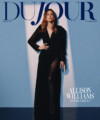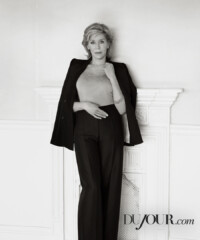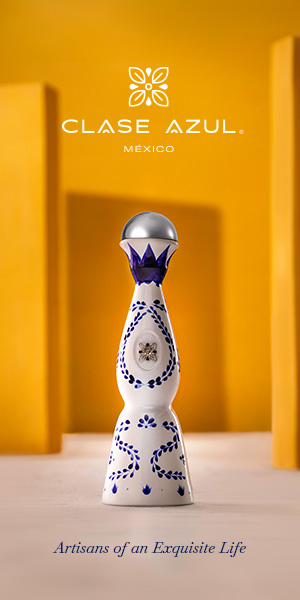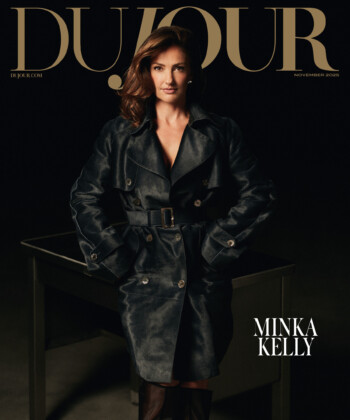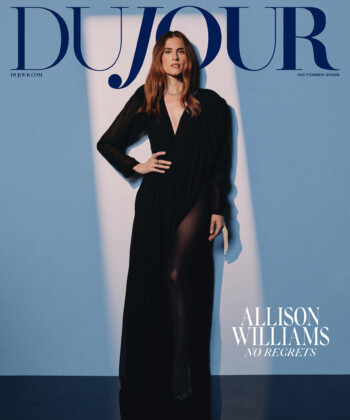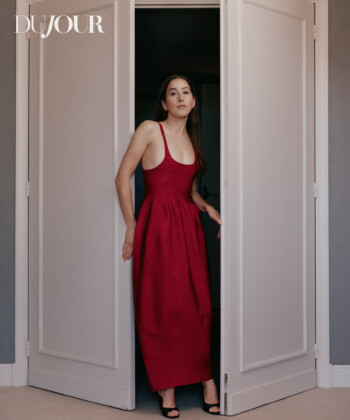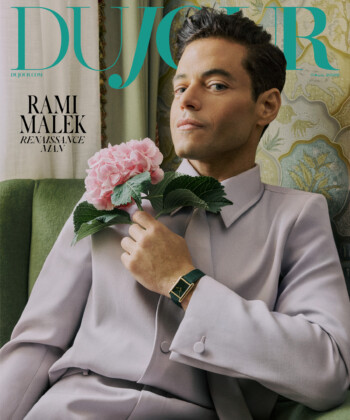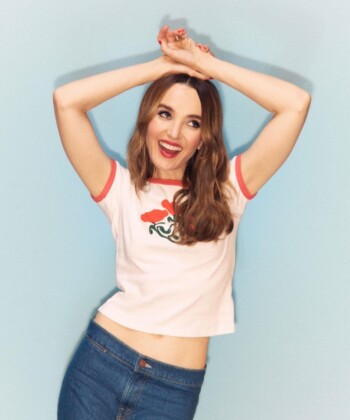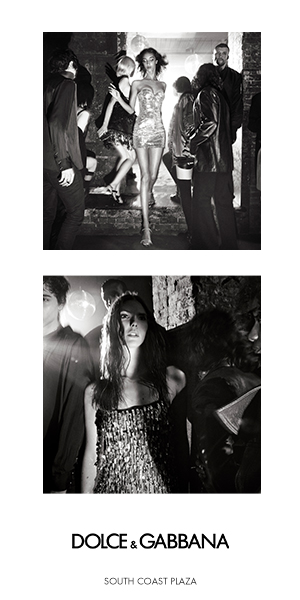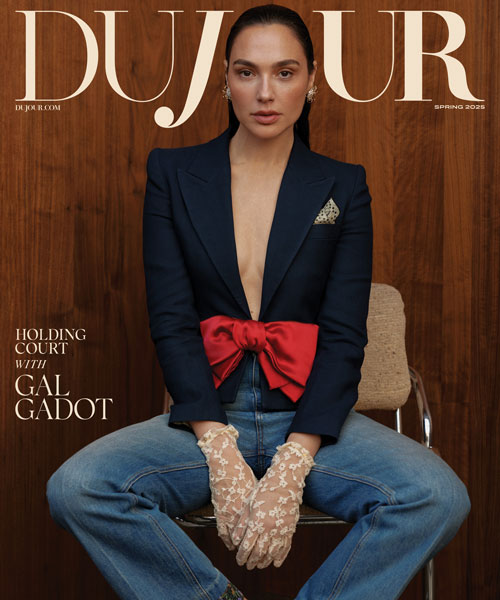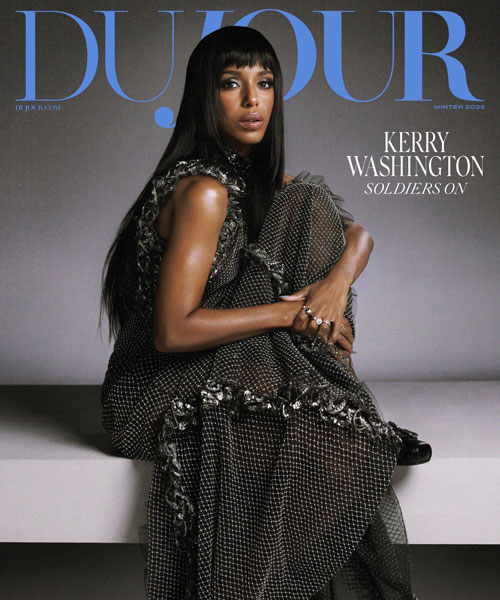Did Fonda really have to retire? After 1990’s Stanley & Iris, she didn’t make a movie for 15 years. Yet that spirit—that sense of self she’d been cultivating and refining over the years—was clawing its way to the surface. When she left Turner, she told him she craved true intimacy and fulfillment. “People always say, Oh my god, how do you stay looking so blah blah blah,” Fonda tells me. “I’ve had plastic surgery. I’ve talked about that. That doesn’t matter. What matters is realizing you can always get better. That you have to keep taking leaps of faith. It gets harder as you get older. You have to stay brave and keep trying to go beyond your comfort zone and see what you need to get to become who you’re supposed to be.”
“As I look back over my life, which I do a lot, I sometimes wonder if it was a mistake that I had so many other things besides acting. Would it have been better if I had focused more?” It’s an impossible question to answer, or then again maybe not. Because the veracity she brings to the screen now wouldn’t be possible without the life she has lived. “You so often see women in our media competing with each other. I like that [Grace and Frankie] is two women befriending each other. That’s very good for people to see.” She pauses, adding: “I have a strong belief that older people have a greater sense of well being. Older women in particular, it’s like, What the hell do we have to lose?”
Fonda is a woman of extremes. After leaving Turner, she was celibate for seven years. Then, at 74, she announced she was having the best sex of her life with music producer Richard Perry. She earned two Emmy nominations for her work on HBO’s The Newsroom. (With a single monologue about the hotness of Daniel Craig, Fonda put that show in her back pocket and walked away with it.) And yet she’s not relaxing into her third act so much as wrestling it to the ground, sometimes winning, sometimes struggling.
“It started maybe six or seven months ago,” she says. “I have to be very intentional about keeping myself grounded and centered. I can fly off and become scattered and lose confidence.”
Confidence in your work?
“In everything.”
For someone who drove the conversation for so long, she’s wondering where and how to direct her energy. “It’s about the Zeitgeist,” she says, almost exasperated. “You’re not driving the Zeitgeist anymore. And guess what? That’s just fine! But you have to settle into it.” She describes herself these days as “a feminist, small-c Christian who is studying Buddhism.” I ask if she misses being on the barricades, which prompts a passionate discussion about activism. She can’t believe we’re still talking about equal pay 35 years after Nine to Five. “I said that at the Kennedy Center Honors when I was honoring Lily,” Fonda recalls, “but they cut it. Talking about equal pay was too far out for [producer] George Stevens.”
There’s more. The other night, she watched the Netflix documentary Virunga, about the struggles to protect a Congolese national park from poachers and British oil interests, and reached out to the film’s producer, Leonardo DiCaprio, to ask what she could do. Fonda is getting louder now: “I had dinner with some activists and I said, ‘We need to get a lot of famous people to go [to Virunga] and literally lay their bodies on the line and say to the oil company, “You’ll have to kill us before you go in there.” ’ The challenge is to stay angry and at the same time not burn yourself out or get an ulcer. It’s hard. That’s another reason I’m meditating. I work on issues that concern adolescence and violence against women, but I’m not on the barricades. I don’t know whether I should be or not.”
When asked if she’d stump for Hillary Clinton, she says, “No. Not because I don’t care for her and admire her and respect her, but I don’t stump for anybody anymore.”
Because you’re polarizing?
“Hmm hmm. They don’t ask me. But you know, I hope she wins. More than that, I hope if she wins that it will make a difference.”
She’s circling around a thought which, I realize, is what this whole conversation has been about, and maybe her whole career. What she’s meditating about, she says, is this question: “How can I remain an interested and full person who is relevant?”
In Hollywood, you can’t get much more relevant than Netflix. Fonda and Tomlin presented together at the Golden Globes a few days after we meet, Fonda dressed in a stunning, body-hugging red sheath she calls a “Versace hot number.” (She has a stylist now: Tanya Gill, who has worked with Hilary Swank and Kate Winslet.) From the podium, introducing best actor in a comedy series, Fonda joked: “You know, it’s nice—it’s nice—that men, at last, are getting the recognition they deserve for being good at comedy.” Moments later, Lena Dunham tweeted, “Jane F. + Lily T. = what heaven looks like 2 me.” Which, for the record, is the Zeitgeist.
When it comes to this third act, one wonders if Fonda is being too hard on herself. She’s the oldest living face of L’Oreal. She’s got two films in the can, Fathers and Daughters with Russell Crowe and Youth, Paolo Sorrentino’s follow-up to The Great Beauty. A video of Ellen DeGeneres catching her wife, Portia de Rossi, doing a vintage Jane workout went viral.
The conversation meanders to a close. On the subject of marijuana, Fonda says, “I’ll smoke pot every now and then. I cannot see a movie on pot. The number of movies I’ve seen thinking, This is probably the best I have ever seen, and then I’ll see it again sober and think, What was I thinking?” And she says she’s found that intimacy she craved—with her children, grandchildren (“You’re only as happy as your least happy child”) and Perry. “He’s a good man,” she says. “It’s hard. He has Parkinson’s. He’s a very kind person. One of the things you should look for when you’re looking for a partner should be kindness. They don’t teach you when you’re young. They should.”
We talk about her dog, a Coton de Tulear, whom she adores. “You can have a bigger dog when your husband has a plane,” she says, with a laugh. And we talk awards season, too. She won’t play favorites, though she loved Foxcatcher. “I used to date a du Pont,” she says, as if she’s just recalled the man herself. “That didn’t make the book. I should make a book of the stories I left out.”





















